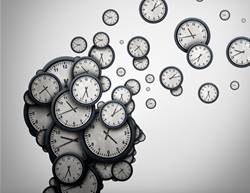On average, women live nearly five years longer than men. They also tend to experience age-related cognitive decline more slowly. Scientists have long theorised why this might be the case, and now a new study offers a possible biological explanation.
The research, conducted on mice and recently published in Science Advances, explored the role of the second X chromosome, which is found in people assigned female at birth. Unlike the X and Y chromosome combination typically found in males, females carry two X chromosomes. One of these X chromosomes has long been thought to remain inactive—but researchers found evidence that it may reactivate later in life.
In the study, scientists discovered that the inactive X chromosome in older female mice began to express more than 20 genes, many of which support brain development.
“In typical ageing, women have a brain that looks younger, with fewer cognitive deficits compared to men,” said neurologist Dr Dena Dubal. “These results show that the silent X in females actually reawakens late in life, probably helping to slow cognitive decline.”
The findings came from experiments conducted on 20-month-old female mice—an age comparable to about 65 in human years. In one test group, researchers engineered the second X chromosome to remain silent. Despite this, it still expressed over 20 genes. Many of those gene expressions were found in the hippocampus—a key brain region for learning and memory and one typically affected by ageing.
“Ageing had awakened the sleeping X,” Dr Dubal noted.
This discovery may help explain why women often maintain stronger cognitive function later in life. It also raises hope for future interventions that could replicate or amplify this benefit across sexes.
“Cognition is one of our biggest biomedical problems, but things are changeable in the ageing brain,” said Dr Dubal. “The X chromosome clearly can teach us what’s possible.”
Further research is needed, but the findings offer a promising new path toward understanding how ageing works—and how to support brain health across the lifespan.



.jpg&h=90&w=90&c=1&s=1)





